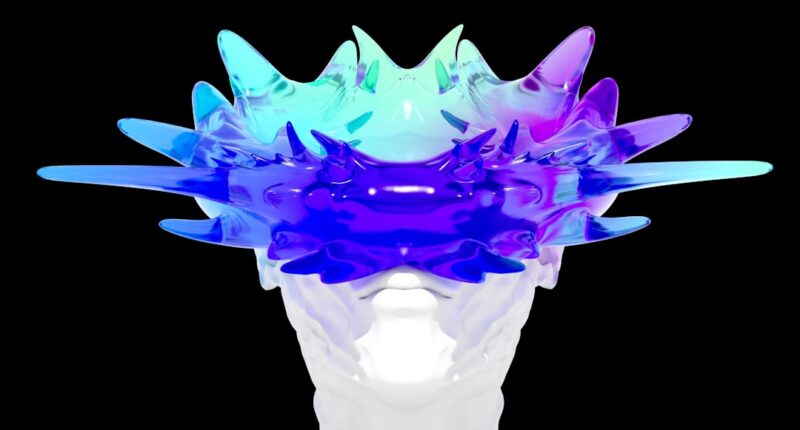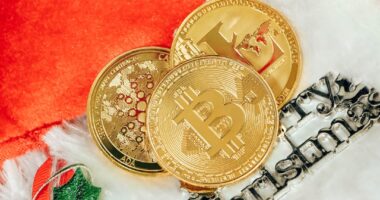The Non-Fungible Token (NFT) ecosystem has emerged as a revolutionary force in the digital landscape, transforming how we perceive ownership and value in the virtual realm. At its core, an NFT is a unique digital asset that represents ownership of a specific item or piece of content, often secured on a blockchain. Unlike cryptocurrencies such as Bitcoin or Ethereum, which are fungible and can be exchanged on a one-to-one basis, NFTs are distinct and cannot be replaced with something else of equal value.
This uniqueness has given rise to a vibrant marketplace where artists, musicians, gamers, and collectors engage in buying, selling, and trading digital assets. The NFT ecosystem encompasses various platforms, marketplaces, and communities that facilitate these transactions, creating a dynamic environment where creativity and technology intersect. As the NFT landscape continues to evolve, it is essential to understand the various components that contribute to its growth.
Marketplaces like OpenSea, Rarible, and Foundation have become hubs for creators and collectors alike, allowing users to mint, buy, and sell NFTs with relative ease. Additionally, the rise of social media platforms that support NFT integration has further fueled interest in this space. Artists can showcase their work directly to potential buyers, while collectors can display their digital assets in virtual galleries.
The NFT ecosystem is not just about art; it extends to music, virtual real estate, gaming items, and even tweets. This diversification highlights the potential for NFTs to disrupt traditional industries by providing new revenue streams and opportunities for creators while also challenging conventional notions of ownership and copyright.
Key Takeaways
- NFTs are unique digital assets that represent ownership of a specific item or piece of content on the blockchain.
- Proficiency in blockchain technology is essential for understanding the underlying infrastructure of NFTs and their decentralized nature.
- Strong programming skills, particularly in languages like Solidity, are crucial for developing and working with NFTs and smart contracts.
- Knowledge of smart contracts is necessary for creating and executing the terms and conditions of NFT transactions and ownership.
- Familiarity with token standards such as ERC-721 and ERC-1155 is important for creating and interacting with NFTs on different blockchain platforms.
Proficiency in Blockchain Technology
A deep understanding of blockchain technology is fundamental for anyone looking to navigate the NFT ecosystem effectively. Blockchain serves as the backbone of NFTs, providing a decentralized ledger that ensures transparency and security in transactions. Each NFT is recorded on a blockchain, which verifies its authenticity and ownership history.
This technology eliminates the need for intermediaries, allowing creators to sell their work directly to consumers while retaining control over their intellectual property. Proficiency in blockchain technology involves not only understanding how it works but also being aware of its various applications and limitations. Knowledge of different blockchain platforms, such as Ethereum, Binance Smart Chain, and Flow, is crucial since each has its own set of features and capabilities that can impact the creation and trading of NFTs.
Moreover, familiarity with blockchain protocols and consensus mechanisms is essential for anyone involved in the NFT space. Understanding how transactions are validated and how smart contracts operate within a blockchain environment can significantly enhance one’s ability to create and manage NFTs effectively. As the technology continues to advance, staying informed about developments such as layer-2 solutions and cross-chain interoperability will be vital for optimizing NFT performance and user experience.
The ability to leverage blockchain technology not only empowers creators but also fosters trust among buyers, as they can verify the provenance of their digital assets with confidence.
Strong Programming Skills

In the rapidly evolving world of NFTs, strong programming skills are indispensable for developers looking to create innovative solutions and applications. Proficiency in languages such as Solidity, JavaScript, or Python is essential for writing smart contracts and developing decentralized applications (dApps) that interact with NFTs. Solidity, in particular, is the primary language used for creating smart contracts on the Ethereum blockchain, which is home to a significant portion of the NFT market.
A solid grasp of programming concepts allows developers to build robust systems that can handle complex transactions while ensuring security and efficiency. Beyond just writing code, strong programming skills enable developers to troubleshoot issues that may arise during the development process. The ability to debug code effectively can save time and resources while ensuring that the final product meets user expectations.
Furthermore, as the NFT space becomes increasingly competitive, developers who can create unique features or enhance user experiences through innovative programming will stand out in the marketplace. Whether it’s optimizing gas fees for transactions or implementing advanced functionalities like royalties for creators on secondary sales, programming expertise is a critical asset in shaping the future of NFTs.
Knowledge of Smart Contracts
Smart contracts are at the heart of the NFT ecosystem, serving as self-executing agreements with the terms of the contract directly written into code. A comprehensive understanding of smart contracts is essential for anyone involved in creating or trading NFTs. These contracts automate processes such as ownership transfers and royalty payments, ensuring that creators receive compensation whenever their work is resold.
By eliminating intermediaries and reducing transaction costs, smart contracts enhance efficiency and transparency in the NFT marketplace. Developers must be adept at writing secure smart contracts that minimize vulnerabilities and protect against potential exploits. Moreover, knowledge of smart contracts extends beyond mere coding; it also involves understanding how they interact with various blockchain networks and protocols.
Different platforms may have unique requirements or limitations regarding smart contract functionality. For instance, Ethereum’s ERC-721 and ERC-1155 standards define how NFTs are created and managed on its blockchain. Familiarity with these standards allows developers to create interoperable NFTs that can be easily traded across different platforms.
As the NFT landscape continues to grow, innovations in smart contract technology will likely lead to new possibilities for creators and collectors alike.
Familiarity with Token Standards
Token standards play a crucial role in defining how NFTs function within the blockchain ecosystem. Familiarity with these standards is essential for developers looking to create compliant and interoperable NFTs. The most widely recognized standards include ERC-721 and ERC-1155 on the Ethereum blockchain.
ERC-721 was one of the first standards developed specifically for non-fungible tokens, allowing each token to have unique properties and metadata associated with it. On the other hand, ERC-1155 introduced a more flexible approach by enabling both fungible and non-fungible tokens to coexist within a single contract. This versatility allows developers to create complex ecosystems where various types of assets can interact seamlessly.
Understanding token standards also involves recognizing their implications for user experience and market dynamics. For instance, NFTs created under different standards may not be compatible with all marketplaces or wallets, potentially limiting their reach and liquidity. Developers must consider these factors when designing their NFTs to ensure they can be easily traded or showcased across various platforms.
As new token standards emerge and existing ones evolve, staying informed about these developments will be vital for anyone looking to thrive in the NFT space.
Experience with Decentralized Applications (dApps)

Decentralized Applications in the NFT Ecosystem
Decentralized applications (dApps) play a vital role in the NFT ecosystem, providing users with platforms to create, buy, sell, and trade digital assets without relying on centralized authorities. Experience with dApps is essential for developers aiming to build innovative solutions that enhance user engagement within the NFT space. dApps leverage blockchain technology to offer transparency, security, and autonomy to users while enabling seamless interactions with NFTs.
Key Skills for dApp Development in the NFT Space
Familiarity with frameworks such as React or Angular can facilitate the development of user-friendly interfaces that enhance the overall experience for collectors and creators alike. Moreover, understanding how dApps interact with smart contracts is crucial for ensuring smooth functionality within the NFT marketplace. Developers must be adept at integrating front-end applications with back-end smart contracts to facilitate transactions effectively.
Technical Requirements for dApp Development
This includes managing user wallets, handling gas fees, and ensuring that all interactions are secure and efficient. As dApps continue to gain traction in various sectors beyond finance—such as gaming, art, and social media—developers who possess experience in building these applications will be well-positioned to capitalize on emerging opportunities within the NFT ecosystem.
Future Opportunities for dApp Developers
As the NFT ecosystem continues to evolve, developers with experience in building dApps will be in high demand. With the potential for dApps to transform various industries, developers who possess the necessary skills and expertise will be well-positioned to take advantage of emerging opportunities and shape the future of the NFT space.
Ability to Collaborate with Designers and Artists
Collaboration between developers and designers or artists is vital for creating compelling NFTs that resonate with audiences. While technical skills are essential for building the underlying infrastructure of NFTs, an understanding of design principles can significantly enhance the appeal of digital assets. Developers should be able to communicate effectively with artists to translate their creative visions into functional NFTs while ensuring that technical constraints do not hinder artistic expression.
This collaborative approach fosters innovation by combining technical expertise with creative insights. Furthermore, successful collaboration often involves understanding market trends and audience preferences. Developers who can work closely with artists to identify what resonates with collectors will be better equipped to create NFTs that stand out in a crowded marketplace.
This synergy between technical proficiency and artistic vision can lead to groundbreaking projects that push the boundaries of what NFTs can achieve. As the NFT space continues to grow, fostering strong relationships between developers and creators will be crucial for driving innovation and expanding the possibilities within this dynamic ecosystem.
Keeping Up with Industry Trends and Innovations
The NFT landscape is characterized by rapid change and innovation; thus, staying informed about industry trends is essential for anyone involved in this space. New technologies emerge regularly—ranging from advancements in blockchain scalability solutions to novel approaches in digital art creation—that can significantly impact how NFTs are created, traded, and perceived by consumers. Engaging with industry news through blogs, podcasts, webinars, or social media channels allows individuals to remain abreast of developments that could influence their work or investment strategies.
Moreover, participating in community discussions—whether through forums like Discord or attending conferences—can provide valuable insights into emerging trends and best practices within the NFT ecosystem. Networking with other professionals can lead to collaborations or partnerships that drive innovation forward while also fostering a sense of community among creators and developers alike. As new use cases for NFTs continue to emerge—such as tokenizing real-world assets or integrating them into virtual reality environments—those who actively seek knowledge will be better positioned to adapt their strategies accordingly and capitalize on new opportunities within this ever-evolving landscape.
FAQs
What are NFT developer jobs?
NFT developer jobs are positions within the blockchain and cryptocurrency industry that focus on creating, developing, and maintaining non-fungible tokens (NFTs) and the platforms that support them.
What skills are required for NFT developer jobs?
Skills required for NFT developer jobs typically include proficiency in blockchain technology, smart contract development, programming languages such as Solidity and JavaScript, understanding of NFT standards like ERC-721 and ERC-1155, and familiarity with decentralized finance (DeFi) protocols.
What educational background is needed for NFT developer jobs?
A strong educational background in computer science, software engineering, or a related field is typically required for NFT developer jobs. Additionally, specialized courses or certifications in blockchain development and NFT technology can be beneficial.
What are the job responsibilities of NFT developers?
Job responsibilities of NFT developers may include designing and implementing NFT smart contracts, developing NFT marketplaces and platforms, ensuring the security and functionality of NFT systems, and staying updated on the latest developments in blockchain and NFT technology.
What is the job outlook for NFT developer jobs?
The job outlook for NFT developer jobs is currently strong, as the demand for blockchain and NFT technology continues to grow. Companies and organizations across various industries are seeking skilled NFT developers to help them capitalize on the potential of NFTs.
What are the potential challenges of NFT developer jobs?
Potential challenges of NFT developer jobs may include the rapidly evolving nature of blockchain technology, the need to stay updated on regulatory changes related to NFTs, and the complexity of developing secure and efficient NFT systems. Additionally, competition for skilled NFT developers may be high in certain markets.





